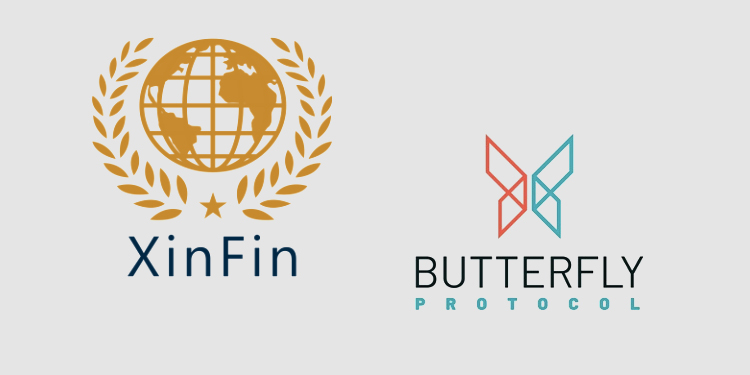Butterfly Protocol, a decentralized autonomous organization (DAO) building a decentralized naming system, and the XDC Network, announced this week that the Butterfly Protocol will be used for an XDC blockchain-specific domain system.
Created by XinFin, the XDC Network is an open-source, delegated proof of stake consensus network (XDPoS), which enables hybrid relay bridges, instant block finality, and interoperability with ISO 20022 financial messaging standards. About Butterfly Protocol
Through a grant from XinFin, a blockchain registry system will be created that allows developers and users of dApps to register domains and use a growing set of open-source tools to develop a standardized URL path to data and processes.
In addition, to access dApps built for the XDC blockchain, the initiative will create human-readable wallet naming and the opportunity to create single sign-on access across the dApp ecosystem.
“We are excited to be an XDC Network partner. The Butterfly Protocol will be used for creating blockchain top-level domains (bTLD); with a blockchain that is known for scalability, stability, and very low transaction costs. This advancement will accelerate decentralized web usage.”
– Dana Farbo, Partnership Lead for Butterfly Protocol
The XDC Network is an enterprise-ready, hybrid blockchain, and is well-positioned to bridge legacy systems with blockchain technology. Further, the XDC Network is EVM compatible, allowing interoperability with Ethereum, and advanced smart contract capabilities for various DeFi use-cases.
Blockchain Domains
Blockchain domains are gaining acceptance with a growing decentralized internet and distributed computing environment. Also, file storage is improving with hybrid cloud and local nodes; providing a more robust infrastructure to handle data-driven societies’ demands. A decentralized naming system allows for ease of use and access; while providing additional layers of security for fraud prevention.
